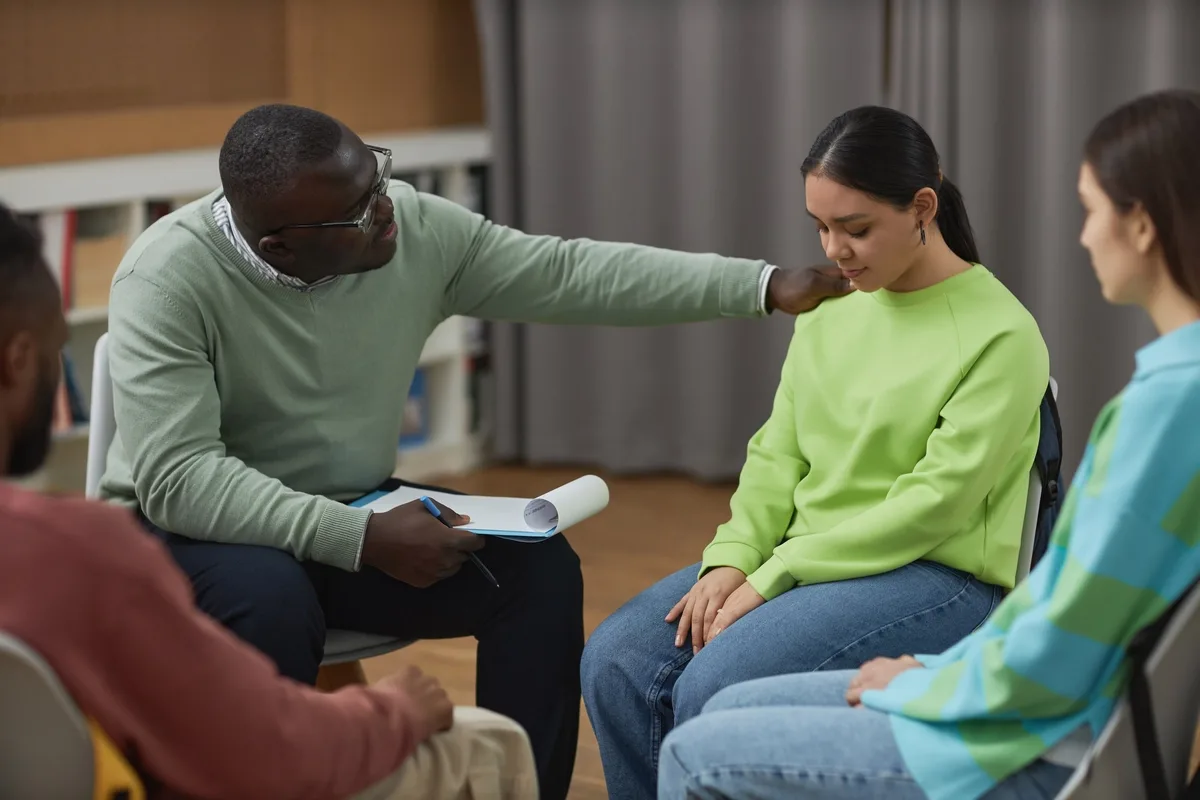24/7 Helpline:
(866) 899-221924/7 Helpline:
(866) 899-2219
Learn more about Bipolar Disorder Treatment centers in Canoga Park
Bipolar Disorder Treatment in Other Cities
Other Categories in Canoga Park

Other Insurance Options

Oxford

Regence

CareSource

Health Partners

Magellan Health

EmblemHealth

Molina Healthcare

Absolute Total Care

CareFirst

WellCare Health Plans

Evernorth

Anthem

Covered California

Health Choice

Providence

GEHA

United Health Care

Carleon

Ceridian

Optima

Wisdom Treatment Center
Wisdom Treatment Center is a private rehab located in Canoga Park, California. Wisdom Treatment Cent...

Looking Glass Counseling
Looking Glass Counseling is a private rehab located in Canoga Park, California. Looking Glass Counse...

Valley Women’s Center
Valley Women’s Center is a private rehab located in Canoga Park, California. Valley Women’s Center s...









